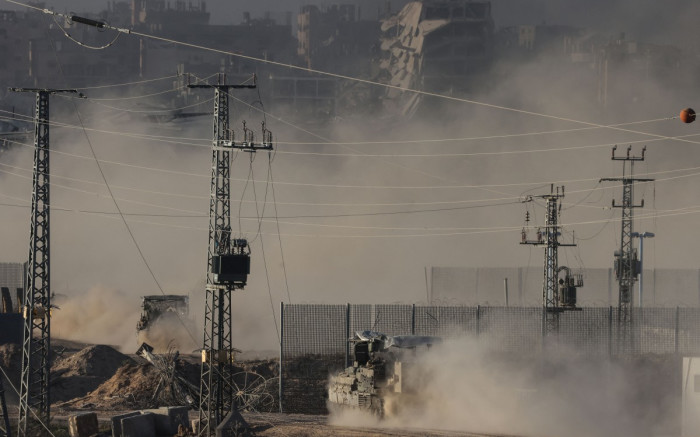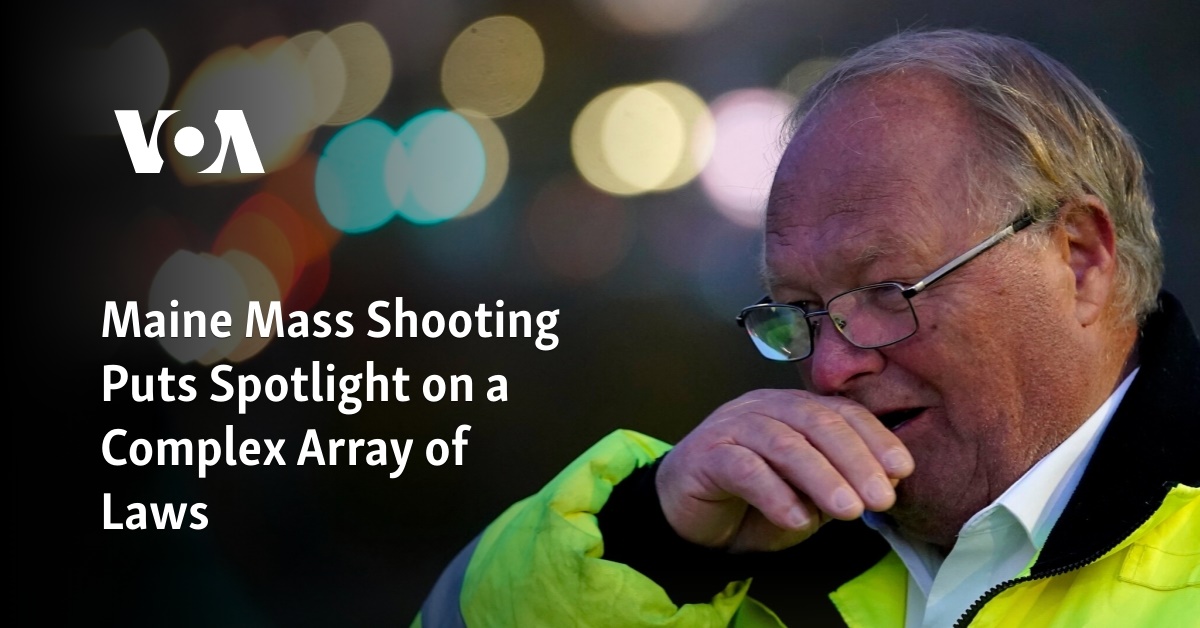
She had pressured her friends and family to persuade her to vote for a major change in government. And on Friday, Aminata Faye, 22, stood outside a stadium in Senegal’s Mbour town, waiting to hear from the opposition politician who had inspired her – and his presidential candidate – in the final stop of a breakneck election campaign.
“They are the only ones saying they are going to change the system,” said Ms. Faye, a student.
The West African state of Senegal will elect a new president on Sunday. Many young people see this as an opportunity to reform the political and economic order. And it was an exciting run-up.
Last month, incumbent President Macky Sall canceled the election with just three weeks to go. Then he agreed to hold it after all. And suddenly, last week, he released from prison the militant opposition figure many consider his nemesis – Ousmane Sonko – as well as the man Mr Sonko supports for president, Bassirou Diomaye Faye.
The whiplash-inducing twists have left many Senegalese relieved that the elections are taking place at all and that their widely praised democracy still appears intact so far.
Although there are 19 candidates in total, many experts believe the election will be a runoff between Mr. Faye and the ruling party’s candidate, Prime Minister Amadou Ba. During election season, Senegal is banned from publishing opinion polls, so there is no concrete indication of who the favorite is.
But ask most young people who they support and they will mention Mr Sonko, whose name is not even on the ballot paper.
Thousands of young people flocked to Mbour Stadium on Friday evening to see him, and the air filled with the honking of vuvuzelas. Binta Cissé, a 30-year-old cleaner, looked around the sea of T-shirts with the faces of Mr. Sonko and his candidate, Mr. Faye, a 43-year-old former tax inspector.
“We can see ourselves in it,” said Ms. Cissé.
The election campaign took place at a rapid pace during Ramadan, when most people in this predominantly Muslim country fast during the day. At night, political convoys raced through the sandy streets of the coastal capital Dakar, blasting music and slogans and handing out leaflets. Posters of politicians’ smiling faces were hastily pasted onto roadside billboards.
The Prime Minister, Mr. Ba, hastily resigned from office to go on the campaign trail. Mr. Sonko’s protégé, Mr. Faye, immediately hit the road after his release from prison. He was held on defamation and contempt of court charges after accusing judges of persecuting Mr Sonko.
Senegal, a country on the westernmost tip of the African continent, has been watching some of its neighbors – like Maliin the east, and Guineain the south – have been hit by coups in recent years.
But Senegal is different, say observers.
There has never been a coup. The country’s powerful Sufi brotherhoods – Muslim communities led by revered spiritual leaders – are considered stabilizing force. The military prides itself on staying out of politics.
Experts say so Senegal has been badly damaged by Mr. Sall’s authoritarian turnThe country’s reputation as a democratic outpost in a crisis region has endured.
But Senegal faces many of the same problems that plague its neighbors in West Africa – such as persistent poverty, an education deficit and a lack of jobs, especially for young people. These are the issues this election is likely to raise – and a key reason Mr Sonko has won such a large young following.
Over the past decade, 35-year-old Lamine Ndao has watched the Senegalese economy grow under Mr Sall’s government – major oil and gas fields have recently been discovered and major infrastructure projects completed. But he was left behind, he said.
He has been looking for a job for ten years, since he graduated from a university in Dakar with a degree in tourism. And most of his friends are in the same situation, he said – except for those who have joined the political party in power.
“If you have political connections, you can work,” he said as he watched shiny SUVs drive by on one of Dakar’s busiest streets a few days before the election. “Do you think that’s fair? It is not.”
Young people like Mr. Ndao had been instrumental in securing Mr. Sall’s rise to the presidency.
Mr. Sall’s predecessor, Abdoulaye Wade, started out as a steadfast champion of democracy who promised change and ran for president four times before his election – twice. He then ran for a third term in 2012, arguing that the constitutional two-term limit did not apply to him. But a vibrant youth movement persuaded hundreds of thousands of young Senegalese to take part in the election, and Mr. Wade lost to Mr. Sall.
Twelve years later, in February this year, many Senegalese said they were taken aback when Mr Sall tried to cancel the election. They were also stunned to see the scenes in Parliament where police threw out opposition MPs so that the bill confirming the rejection could be pushed through.
Mr Ndao, the unemployed college graduate, voted for Mr Sall in 2012. In 2019, he said he was so disillusioned that he didn’t bother voting. He said that while he wanted to build his life in Senegal, he had considered risking his life on a rickety boat to Europe or following the thousands of West Africans now trying to emigrate to the United States Detours via Nicaragua.
He hoped it wouldn’t come to that, he said: He and all his friends are pinning their hopes on the man who has made it his career to condemn elites, accuse prominent politicians of corruption and promise change: Mr Sonko.
No one can vote for Mr Sonko, who was barred from running after being convicted of defamation and bribery of a minor after a young massage parlor employee accused him of rape. Therefore, they will vote for Mr. Faye instead, Mr. Ndao said.
As the light faded over Ouakam, a suburb of Dakar, on Tuesday evening, young volunteers from Mr. Sonko’s group handed out free dates and coffee to Muslims breaking the fast.
Bassirou Faye, a 24-year-old bus driver who happens to bear the name of Mr. Sonko’s party’s presidential candidate, said he had no interest at all in Mr. Sonko in the 2019 election. Mr Sonko came third with 16 percent of the vote.
But this time, Mr Faye said he would travel the 100 miles to his hometown of Bambey just to vote for Mr Sonko’s candidate.
“Because of all the injustice he faced, I started following him and supporting him,” he said.
Mr. Faye and Mr. Sonko have promised major economic changes, such as renegotiating oil and gas contracts and reforming or abandoning the regional currency, which is pegged to the euro.
Analysts say this could deter foreign investors in Senegal and slow economic progress.
Supporters of Mr Ba said he was a safe pair who would continue on the same stable path as Mr Sall, who many believe has ensured proper progress.
“He is calm and composed,” said Valéry Kalidou Bonang, a 35-year-old entrepreneur from Kedougou in eastern Senegal. He said he would like to see the continuation of Mr. Sall’s program of building infrastructure and improving living conditions, known as Emerging Senegal. “But it’s not a question of the person. It’s a question of the project.”
Mr Ndao, the tourism graduate, said his father voted for Mr Ba, along with many older people who would get up early and vote, while many young people did not even have voter ID cards.
“Young people are the ones who need change,” he said. “The old ones are on the way out.”






Recent Comments